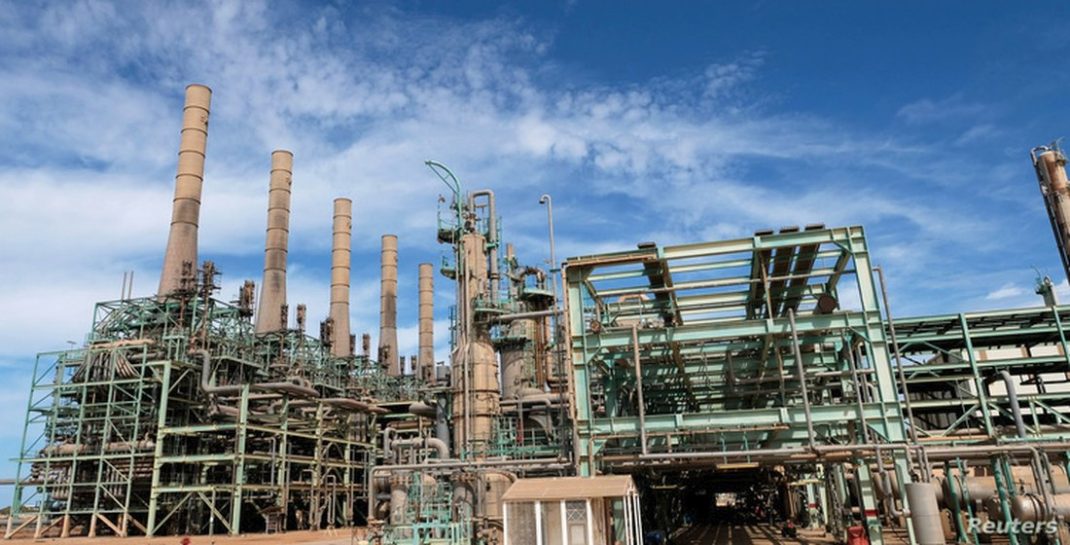By Michael Rummel
 The Libyan civil war has found a new battlefield: the halls of Washington. The eight-year conflict shows little sign of ending, and the warring governments are stepping up their efforts to influence policymakers in the United States.
The Libyan civil war has found a new battlefield: the halls of Washington. The eight-year conflict shows little sign of ending, and the warring governments are stepping up their efforts to influence policymakers in the United States.
Crucial to these efforts, and the Libyan conflict as a whole, is the country’s oil output. Production currently stands at more than a million barrels a day, and the revenue is crucial to all aspects of the conflict. It funds the weapons, the militias, and the lawyers lobbying officials in the United States.
Most of the oil is shipped to Western Europe, where Libyan oil retains an “outsized significance to the European market,” according to Dr. Cullen Hendrix, professor at the University of Denver and nonresident senior fellow at Peterson Institute for International Economics.
Under army’s control
Most of the oil facilities are located in territory controlled by the Libyan National Army, led by Field Marshal Khalifa Haftar, even as the revenue generated goes to Libya’s state-owned oil company, the NOC. The oil funds are then distributed through Libya’s central bank, which supplies only the U.N.-backed Government of National Accord (GNA).
The LNA, representing the Tobruk-based House of Representatives (HoR), is currently sieging the GNA’s capital of Tripoli. The U.N. estimates more than 1,000 people have been killed in the seven-month siege alone.
The siege is symptomatic of the international nature of the conflict. Foreign drones dot the air, Turkish and Emirati-made armored personnel carriers bring fighters to the battlefield, and recent reports indicate that Russian and Sudanese mercenaries now are fighting for the LNA.
While the United States officially backs the GNA, it is largely uninvolved outside counterterrorism efforts. Libya’s rival governments are seeking to change that.
In the past year, the rival governments of Libya penned millions of dollars’ worth of contracts with government relations firms in the United States. The U.N.-backed GNA hired Mercury Public Affairs for $2 million a year, not including a $500,000 initial payment. The contract came shortly after President Donald Trump called LNA chief Haftar.
Mercury’s activities are extensive. Its contract details its services as lobbying Congress and the executive branch, identifying interest groups, public relations and international affairs. According to records from the Foreign Agents Registration Act, Mercury contacted congressional offices over 380 times, press agencies upward of 110 times and the White House deputy chief of staff.
These contacts included requests to secure interviews for the Government of National Accord’s deputy prime minister, largely with major press organizations.
Oil exports
The GNA enlisted further help to lobby on behalf of Libya’s oil exports, hiring the international law firm Gerstman Schwartz in August of this year. Gerstman’s efforts are centered on modifying the sanctions surrounding a fund built up by oil exports that is earmarked for Libya’s reconstruction.
The windfall from the export revenue will be crucial to rebuilding efforts, but current sanctions don’t allow the funds to collect any interest. As a result, banks are siphoning money through fees, draining a fund that would be best used in the extensive rebuild Libya will have to undergo after the conflict is resolved.
In September, Tripoli retained another firm, Gotham Government Relations, where Gerstman and Schwartz are partners. According to the contract, Gotham will “highlight the [GNA]’s contributions to combating terrorism; counsel GNA regarding outreach to U.S. and foreign think tanks; and prepare reports on Haftar’s human rights violations and crimes against the Libyan people.” The contract is worth $1.5 million for the year.
On the other side of the conflict is the Libyan National Army and its nominal government, the eastern-based House of Representatives. In May the two signed a new contract with Linden Strategies after parting ways with the firm Dickens & Madson.
Ari Ben Menashe, the president of Dickens & Madson, described his role as “arranging meetings” between Haftar and officials in Russia and the United States. Menashe “advised Haftar against” the siege of Tripoli, and said he dedicated his time to mediation efforts. The eastern-based government paid handsomely for Dickens & Madson’s services, with a contract totaling $6 million.
Trip to U.S.
Since then, Linden has taken the torch and organized a trip for representatives of the eastern government to the United States. In conjunction with this trip, Linden contacted members of Congress, officials at the State and Defense departments, the National Security Council and the White House.
The Libyan delegation met with these same officials. During these meetings, Linden did not press for U.S. intervention, though it did welcome “continued cooperation” in fighting terrorist elements in Libya, such as Islamic State and al-Qaida. The fees for this agreement reached $5.4 million.
If officials in the U.S. choose to put Washington’s formidable clout to use, these millions of dollars in lobbying contracts will be money well spent.
__________




